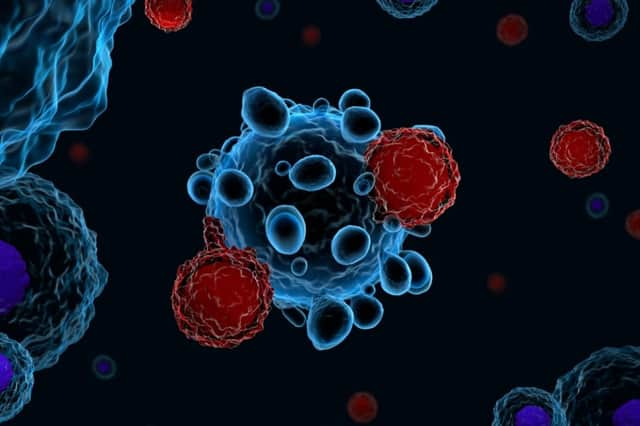This is what T cells are - and how they're linked to severe forms of coronavirus


UK scientists will begin testing a new treatment that could counter the effects of Covid-19 in those that are most seriously ill with the disease.
It's all to do with ‘T cells’, and the surprising way in which it has been found they interact with coronavirus.
Here’s everything you need to know:
What are T cells?
T cells play a central role in the immune response.
Advertisement
Hide AdAdvertisement
Hide AdTheir important role in controlling and shaping the immune response comes through their provision of a variety of immune-related functions, such as ‘immune-mediated cell death’.
Certain types of T cells – also known as "killer cells" – are able to directly kill virus-infected cells, and can even ‘recruit’ other cells when mounting an immune response.
Others – affectionately known as “helper cells” – can indirectly kill cells identified as foreign by determining if and how other parts of the immune system respond to threats.
How do they affect coronavirus patients?
Research has found those with the most severe form of the disease have extremely low numbers of the immune cells.
Advertisement
Hide AdAdvertisement
Hide AdThat finding perhaps doesn’t sound surprising, but it appears Covid-19 is taking on T cells – and winning.
Professor Adrian Hayday from the Crick Institute said it was a "great surprise" to see what was happening with the immune cells.
Scientists have looked at immune cells in the blood of 60 Covid-19 patients and found an apparent crash in the numbers of T-cells.
Normal healthy adults have between 2,000 and 4,000 T cells per microlitre (0.001ml) of blood; the Covid patients the team tested had around 200 – 1,200.
Advertisement
Hide AdAdvertisement
Hide Ad"They're trying to protect us,” Prof Adrian told the BBC, “but the virus seems to be doing something that's pulling the rug from under them, because their numbers have declined dramatically.”
The findings have inspired scientists to begin the clinical trial of the drug, interleukin 7. The study which involves scientists from the Francis Crick Institute, King's College London and Guy's and St Thomas' Hospital.
"The virus that has caused this completely Earth-changing emergency is unique - it's different. It is something unprecedented,” said Prof Adrian.
"The exact reason for this disruption - the spanner in the works of the T-cell system - is not at all clear to us.
Advertisement
Hide AdAdvertisement
Hide Ad"This virus is really doing something distinct and future research - which we will start immediately - needs to find out the mechanism by which this virus is having these effects."
What can the drug do?
It’s hoped interleukin 7 – known to boost T-cell numbers – could one day be adapted into a treatment to reverse immune cell decline, which would in theory speed up patients’ recovery.
Researchers hope to be able to develop a "fingerprint test" to check the levels of T cells in the blood; this could give doctors and other medical professionals a clearer idea as to who might be more at risk at developing the disease’s more severe symptoms.
Manu Shankar-Hari, a critical care consultant at Guy's and St Thomas' Hospital, told the BBC: “We are hoping that [when we increase the cell count] the viral infections gets cleared.
Advertisement
Hide AdAdvertisement
Hide Ad“I look after patients who are extremely unwell and, other than supportive care, we do not have any direct active treatment against the disease. So a treatment like this coming along for in the context of a clinical trial is extremely encouraging for critical care physicians across the UK."